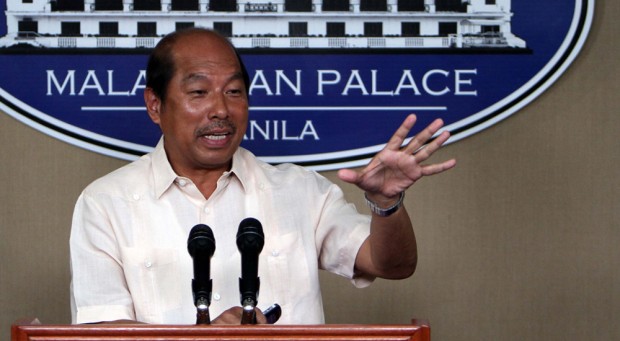Former Budget Secretary Florencio Abad has invoked the presumption of good faith in defending himself against a criminal complaint filed in the Office of the Ombudsman by activist groups over the controversial Disbursement Acceleration Program (DAP) during the Aquino administration.
In a 116-page counteraffidavit received recently by the complainants and obtained by the Inquirer, Abad said the Supreme Court’s February 2015 decision declaring certain budgetary practices under the DAP unconstitutional should not be applied retroactively for purposes of criminal liability.
Seeking the dismissal of the complaint, Abad said he and former President Benigno S. Aquino III should not be prosecuted for technical malversation, graft and usurpation of legislative powers, because acts committed before the Supreme Court issued its ruling should be presumed valid.
The DAP was a “budgeting mechanism” created by the Department of Budget and Management in 2011 with the purported aim of accelerating spending by government and boosting the economy.
The Supreme Court made its decision final on February 2015, declaring certain budgetary practices under the DAP to be unconstitutional. The acts included the cross-border transfer of funds and the declaration of savings before the end of a fiscal year in order to realign the funds to items not allocated in the budget law passed by Congress.
If officials are held liable for actions that are later nullified, Abad said “public servants would be paralyzed and prevented from discharging their functions by the yet amorphous threat of criminal prosecution (or, worse, persecution).”
He said he did not usurp legislative powers because he was carrying out the DBM’s tasks of issuing guidelines for the
release of the funds, releasing allotments and issuing disbursement authorities.
“It fell upon me, as the President’s alter ego in relation to his duty to maintain the sound and efficient management of the government’s financial resources, to formulate a policy for the implementation of this authority,” Abad said.
He said that even the Supreme Court agreed with the government’s position that the adoption of the DAP was pursued by the executive branch under its role as the “main actor” in the budget execution stage, and that Congress did not need to legislate the DAP.
Under the DAP, the executive branch was only exercising “the exclusive constitutional prerogative” to actually spend the amounts or continue or abandon certain projects and programs under the appropriations law, he said.
Abad also said he was not an “accountable officer” who could be held liable for technical malversation.
